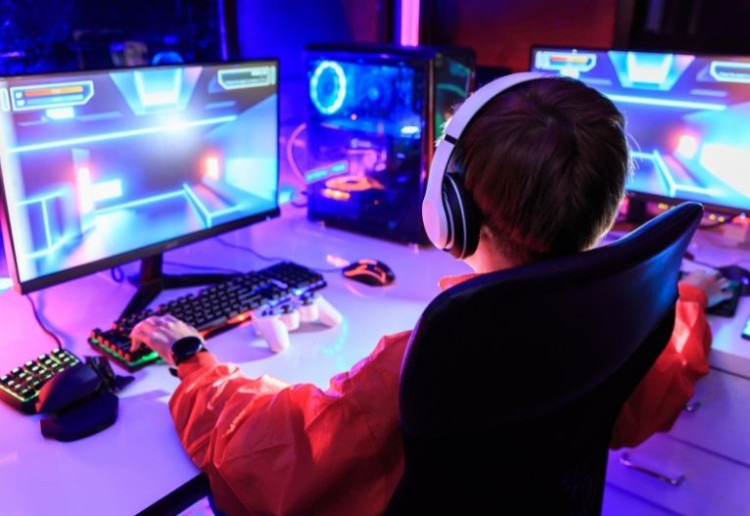Australian children as young as 11 are turning to stealing from family members to help fuel their online gaming addictions, according to a new study.
A Macquarie University study of about 1000 Australian teenagers has uncovered that 2.8 per cent were affected by Internet Gaming Disorder, which is seriously impacting their schoolwork, relationships and mental health.
Case studies as part of the research found disturbing behaviour from children as young as primary school age, who are ‘addicted to the internet to the point of self-harm when things don’t go’ their way.
Developmental Psychologist, Associate Professor Wayne Warburton, who was one of the researchers involved in the study, explained that to meet the criteria for Internet Gaming Disorder (IGD), video-game use needs to be having serious impact across several areas of the child’s life.
“A serious impact on a single area may indicate hazardous gaming (HG) behaviour, which may also require intervention,” he said.
13-year-old addicted to online gambling, 11-year-old self harming

The two case studies revealed as part of the study also included a 13-year-old boy, who had threatened self harm with a knife after his parents tried to limit his screen time.
Previously a high-achiever at school, his grades had started to drop, admitting he was spending up to eight hours a day during the week online. He also revealed to gambling within his favourite game Counter Strike Global Offensive, losing around $3000.
While the 11-year-old boy who was part of the study revealed he had stolen his grandmother’s credit card to buy items in Fortnite. But even after admitting his stealing, he continued and charged another $500 to the card for online gaming purchases.
How much is too much?

Associate Professor Warburton says the recommended amount of recreation screen time for children is different for each age group. For example, the national guidelines recommend no screen time for children under the age of two.
“There’s no evidence such young children benefit even from educational media, so we should rethink handing our phones to babies and toddlers. For those aged two to five, the recommendation is up to 45 minutes of educational media a day, like Playschool or Sesame Street, but it’s important that there’s an adult present to guide that viewing.
“For school-age kids, guidelines have been replaced by a recommendation to develop a family media plan, where you and your kids decide on limits together. It’s probably going to be more than the old recommendations of one hour a day during primary school and two in high school, but if you’re getting above three to four hours, then you’re running out of room for them to have a balanced life.
“Think of a healthy media diet as being like a healthy food diet – it’s about moderation and good choices.”
What are the warning signs of Internet Gaming Disorder?
- Kids spending an increasing amount of time in their bedrooms
- Falling school grades
- Missing important activities
- Giving up things they used to enjoy
- Lying about how much time they spend gaming
- A reduced number of friends
- More tired and irritable
- Find it hard when they can’t game
In 2015, children in the US aged between 13 and 18 were spending an average of six hours and 40 minutes a day on recreational screen use. By the time the pandemic hit, that had risen to an incredible eight hours and 39 minutes a day – and the experts say the figures in Australia have followed a similar path.
“Anyone can develop a screen addiction, but my research shows kids are more at risk if they have issues with impulse control and if their basic needs, like self-esteem, being included, feeling good at things and being in control, are being met better online than offline,” Associate Professor Warburton said.
New program being trialled
In a bid to combat children’s rising online gaming addiction, Associate Professor Warburton and Dr Kerstin Paschke, from the University of Hamburg Medical Centre in Germany, are testing a new treatment program for problematic gaming.
The trial starts in Australia in October, and families on NSW’s Central Coast with eligible high-school-aged children are being invited to take part.
While the program is free, participants need to be able to travel to Wyong and commit to 13 to 16 sessions.
For further information, Associate Professor Warburton.




















11:18 am
6:20 am
8:37 pm
5:43 pm
11:42 am
11:12 am
3:04 pm
9:55 pm
-

-
-
Ellen replied
- 18 Jul 2022 , 4:25 am

Reply8:49 pm
-

-
-
Ellen replied
- 20 Jul 2022 , 7:42 am

Reply3:45 pm
2:44 pm
1:19 pm
12:48 pm
-

-
-
Ellen replied
- 17 Jul 2022 , 7:39 am

Reply11:45 am
10:11 am
9:31 am
9:14 am
7:40 am
-

-
-
mom93821 replied
- 17 Jul 2022 , 11:13 am
Reply6:31 am
6:09 am
- 1
- 2
- »
Post a commentTo post a review/comment please join us or login so we can allocate your points.